Hida City is roughly a 25-minute drive north of Takayama City by car or 30 minutes by way of local train travel. This northern town is perhaps best known for it’s ‘Hida Furukawa’ district.

In the last journal entry, I mentioned ‘Santera Mairi,’ a festival which we learned about while making Hina no Tsurushi Kazari (‘The traditional hanging ornaments’) kimono crafts. The festival ‘Santera Mairi,’ where young women come from all over Japan to wish for good luck in love & marriage, is held in Hida City.
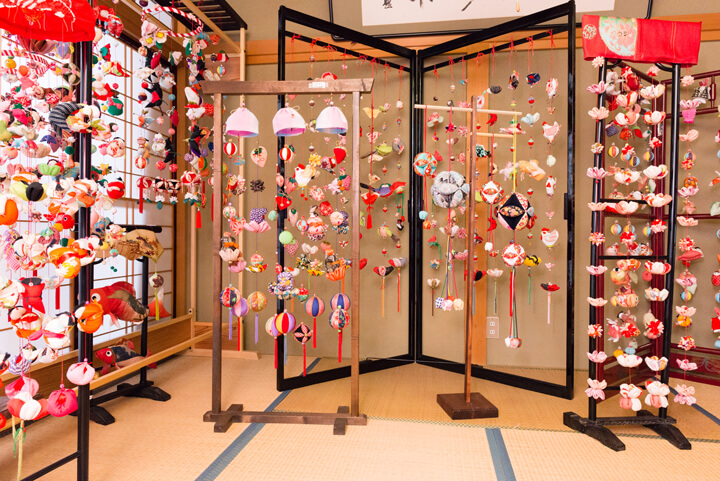
While I was on my ‘foodie’ mission, I came upon a house decorated with what looked like little dolls and tiny soft figurines made using brightly colored cloth.
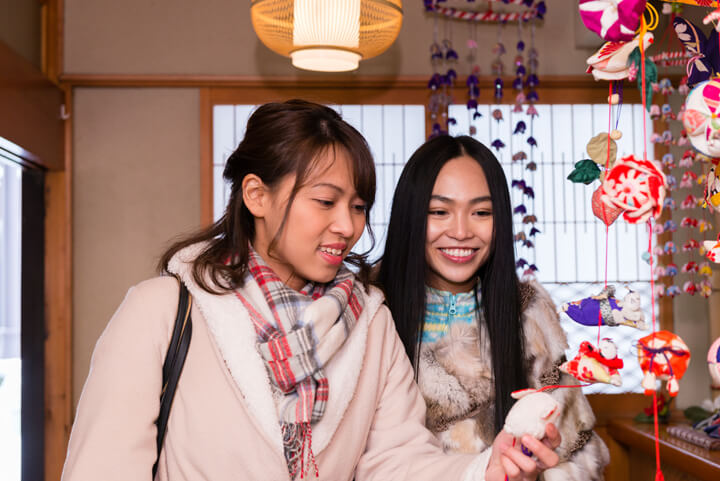
When I entered the home, I was overwhelmed with the bright colors and exquisite hanging decorations. I knew I couldn’t leave Hida Takayama without buying one for myself.
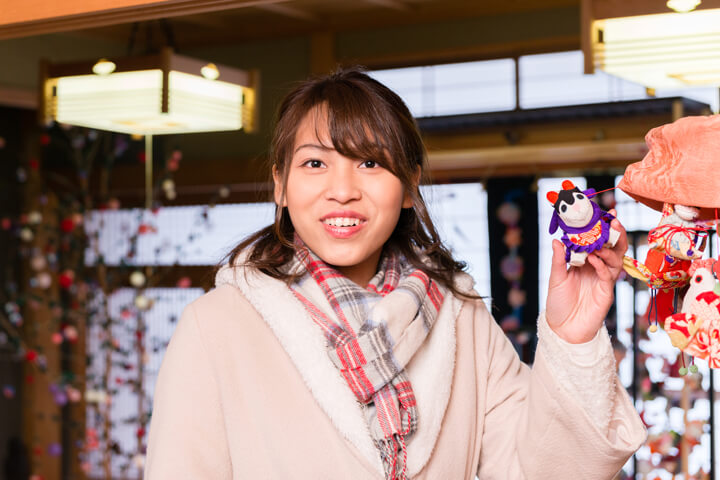
I was told the name for this type of craft is ‘Hina no Tsurushi Kazari’ which means ‘The traditional hanging ornaments, it is a gift from mother to daughter on birthday.’ Because kimono fabric is used, it’s particularly beautiful and inherently Japanese in design.
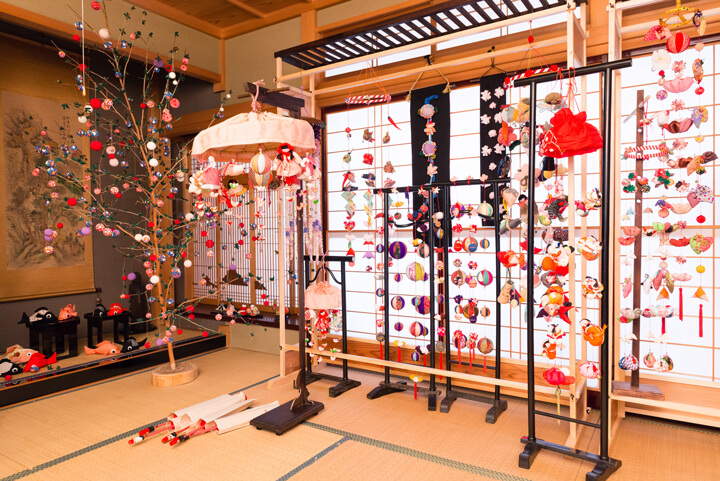
The figure itself is in the shape of either a small ball, flower, or animal which is handmade with kimono fabric (silk and ‘chirimen silk crepe’). It’s then connected to a string and hung from a loop like a hanging mobile.
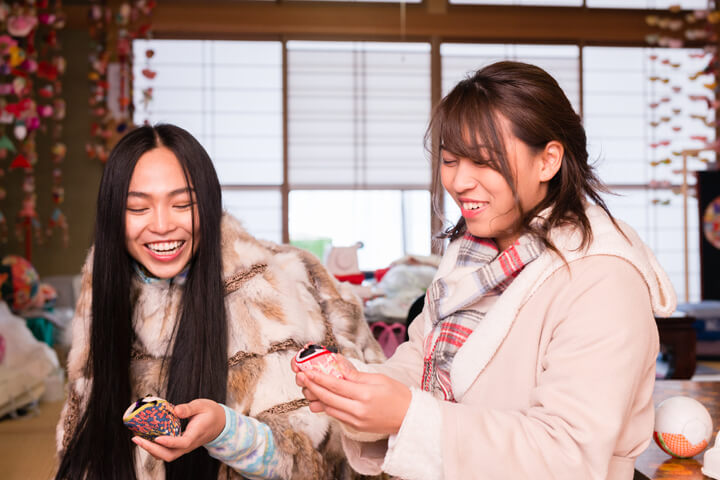
These decorations are handed down from generation to generation in Japanese families, and it’s a tradition that goes back 200 to 300 years, to the Edo period. Hina no Tsurushi Kazari are generally used to celebrate the birth of a girl, and for wishing good health upon your daughters.
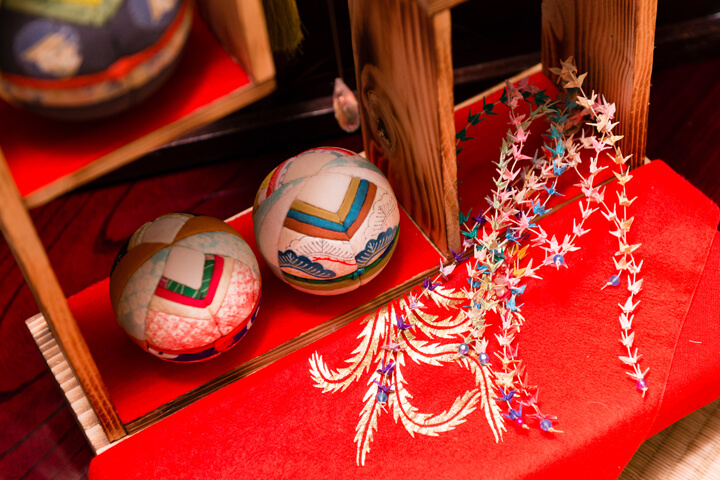
In this area, local people told me that it’s also made as a decoration for the traditional event ‘Santera Mairi’ which is held on the 15th of January every year in Hida City Furukawa—a neighboring town. Many people come from all over the country of Japan for this event, which seems to be for good luck in marriage! I decided to make this hanging decoration, as my own souvenir of this memorable trip.
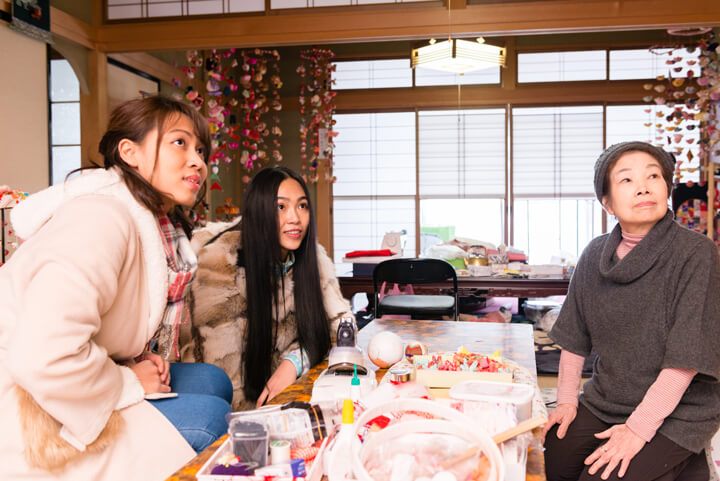
First off, I picked seven pieces of my favorite fabrics. Choosing from such a variety of beautiful patterns was difficult. Then we stitched little petals out of the silk and attached them to a small sphere to create a flower blossom.
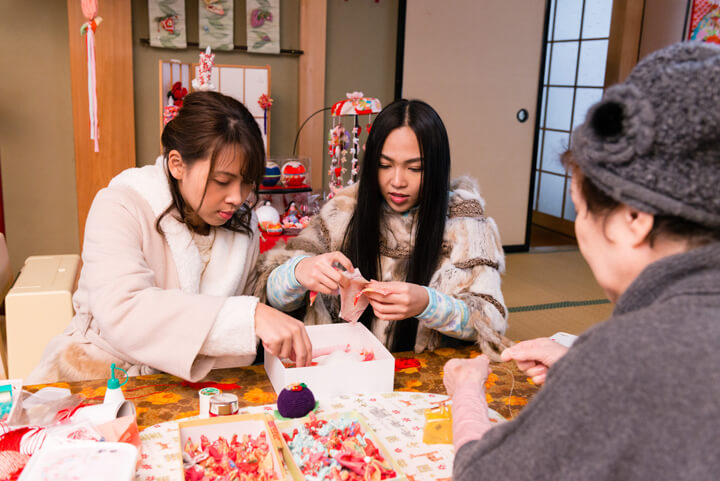

The woman who owned the store was there to guide us and teach us how to to do it correctly. I felt like my first try wasn’t very good, but I got better over time—improving my speed and technique. It was nice chatting with the women there, as I could learn first hand about their daily lives.
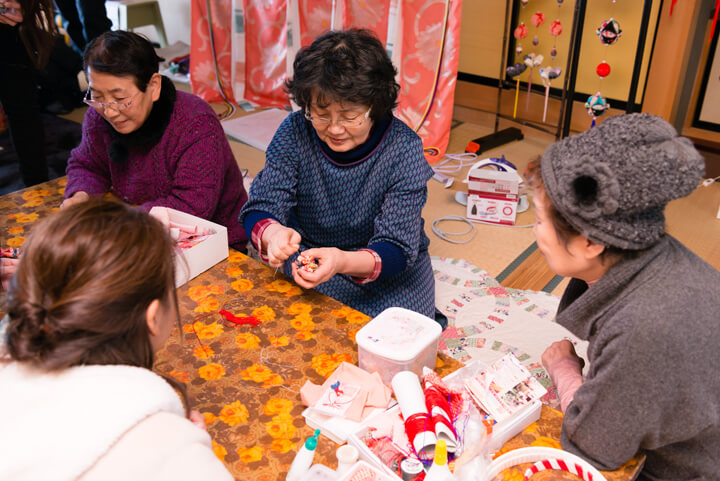
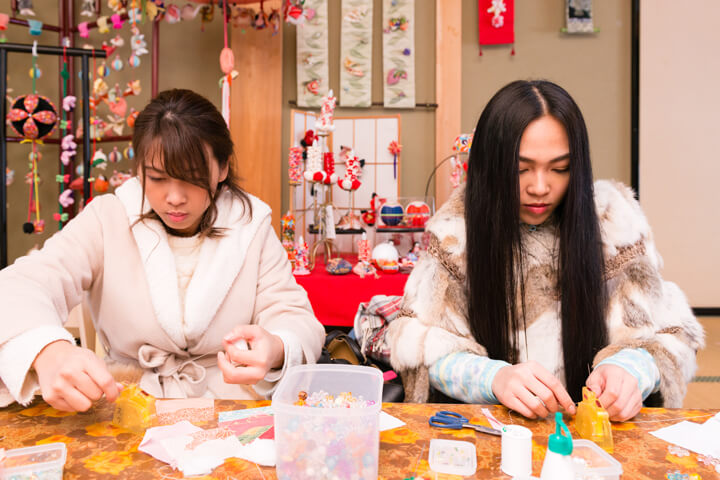
I got a deeper understanding of the Japanese culture and some insight into their traditions.
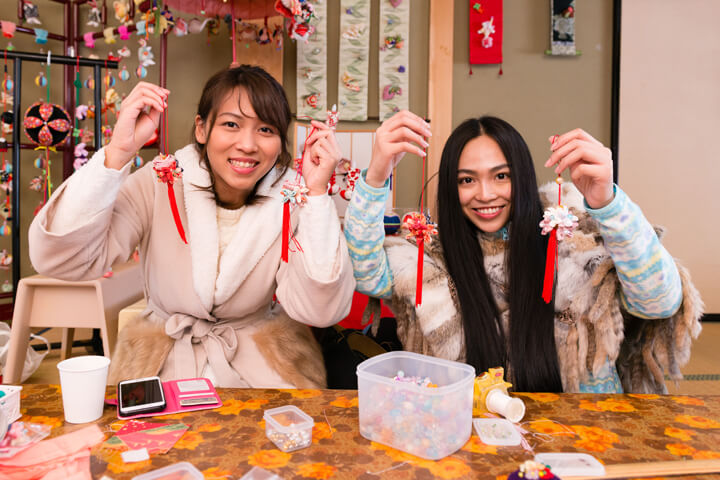
The decoration was completed in about an hour; and although the shape was slightly irregular, I took great pleasure in the fact that I made it myself! A memory I will be able to keep forever.
